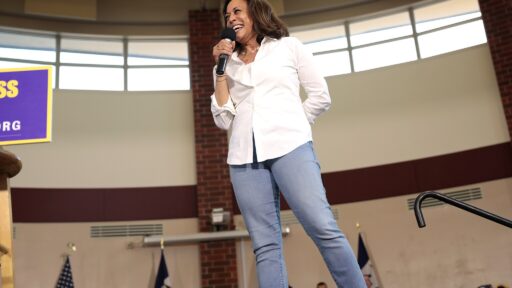This confession has raised even more questions.
President Joe Biden recently addressed the escalating tensions in the Middle East, suggesting that while the risk of all-out war is real, there remains a chance for a peaceful resolution to Israel’s conflicts with Hamas in Gaza and Hezbollah in Lebanon. During an appearance on ABC’s “The View,” he stated, “An all-out war is possible, but I think there’s also the opportunity—we’re still in play to have a settlement that can fundamentally change the whole region.”
Biden, attending the U.N. General Assembly in New York, is attempting to defuse the situation as violence between Israel and Palestinian militants threatens to spread further into Lebanon. Israel has intensified its airstrikes in Lebanon and successfully intercepted a missile launched by Hezbollah targeting a location near Tel Aviv.
Despite his support for Israel, Biden has publicly advocated for a two-state solution, indicating a divergence from Israeli Prime Minister Benjamin Netanyahu’s stance. “I don’t agree with his position. There needs to be a two-state solution,” he asserted. This reflects a broader aim of achieving stability in the region while ensuring Israel’s security.
Looking ahead, Biden expressed optimism that, once cease-fires are established with both Hezbollah and Hamas, efforts can shift toward addressing issues in the West Bank. He emphasized, “It’s possible, and I’m using every bit of energy I have… to get this done. There’s a desire to see change.”
For Republicans, it’s crucial to understand the implications of these developments. Supporting Israel’s right to defend itself while navigating the complexities of Middle Eastern politics is a delicate balance. The focus on a two-state solution raises important questions about security and sovereignty for both Israelis and Palestinians. As the situation unfolds, the emphasis should remain on ensuring that Israel’s security is prioritized while seeking lasting peace in the region.







